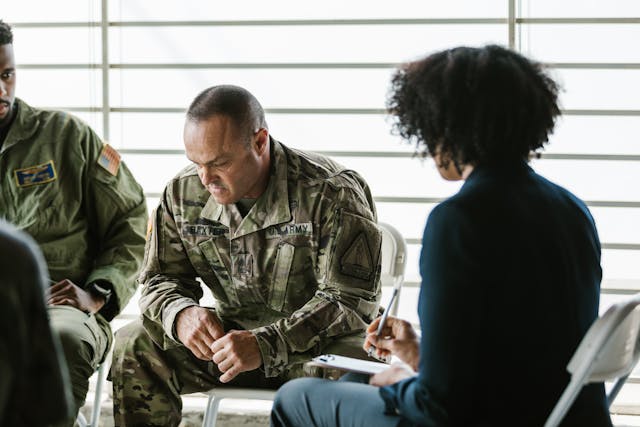Navigating Post-Service Trauma And Building A Healthy Life
Veterans returning from active service often face the challenging task of reintegrating into civilian life. This transition can be complex, especially when the mental and emotional wounds of war are left untreated. The impact of untreated trauma can have a profound effect on a veteran's wellbeing, relationships, and overall quality of life. However, with the right support, resources, and mindset, veterans can overcome these obstacles and create a healthy, vibrant life post-service. Understanding the nuances of post-service trauma is crucial in assisting veterans on their journey to healing.
The Silent Struggle: Consequences of Untreated Trauma
Many veterans come home with untreated trauma, often in the form of Post-Traumatic Stress Disorder (PTSD). PTSD is a mental health condition that can develop after experiencing a life-threatening or deeply distressing event, such as combat. The symptoms of PTSD can include flashbacks, nightmares, hypervigilance, anxiety, depression, and emotional numbness. Unfortunately, the stigma around mental health in the military can deter veterans from seeking the necessary help. The "tough it out" mentality prevalent in military culture can leave veterans feeling isolated and hesitant to acknowledge their struggles.
Even without PTSD, other forms of trauma like moral injury or survivor's guilt can profoundly impact veterans' emotional and psychological health. These invisible scars often go untreated for years, hindering veterans from fully embracing life after their service. The effects of trauma can manifest in various ways, such as difficulty in maintaining relationships, challenges in employment, or engaging in harmful coping mechanisms like substance abuse or social withdrawal. Without addressing these issues, veterans may feel trapped and unable to find peace or purpose post-service.
The Power of Support and Resources
Seeking and accepting help is a vital component in navigating post-service trauma. While it may be daunting initially, reaching out for support marks the beginning of the healing journey. Thankfully, there are numerous resources available to veterans, and tapping into these resources can be transformative.
The U.S. Department of Veterans Affairs (VA) offers various programs tailored to help veterans recover from trauma, including counseling, mental health services, and support groups. Vet Centers, run by the VA, provide confidential readjustment counseling to veterans and their families, aiding them in coping with the challenges of transitioning back to civilian life. Through these services, veterans can connect with licensed professionals who understand their unique struggles.
Aside from formal programs, support from fellow veterans can be a potent source of healing. Peer support groups offer veterans a safe space to share their experiences, validate each other's feelings, and provide encouragement. Many veterans draw strength from realizing they are not alone in their battles. Organizations like the Wounded Warrior Project and Team Red, White & Blue also offer opportunities for community building, enabling veterans to connect with others who share similar experiences.
Securing Stable Housing: A Foundation for Recovery
For veterans transitioning to civilian life, securing stable housing is a crucial initial step in constructing a healthy, thriving future. Stable housing forms the groundwork needed for veterans to focus on their mental and physical well-being, pursue employment, and rebuild relationships. Unfortunately, many veterans encounter difficulties in finding affordable housing, especially those grappling with untreated trauma or limited resources. Accessing housing assistance programs through the VA, local community organizations, and nonprofits can assist veterans in securing a safe and stable living environment.
Alongside finding permanent housing, self-storage can be a valuable resource for veterans during their transition. Many veterans may have accumulated possessions during their service or require time to downsize as they settle into new homes. Self-storage units offer a temporary solution for safely storing belongings while veterans concentrate on getting their lives back on track. By utilizing self-storage, veterans can declutter their living space, establish a sense of organization, and alleviate the stress of dealing with an overwhelming amount of personal items. This added convenience can remove one obstacle from their path to healing and stability.
